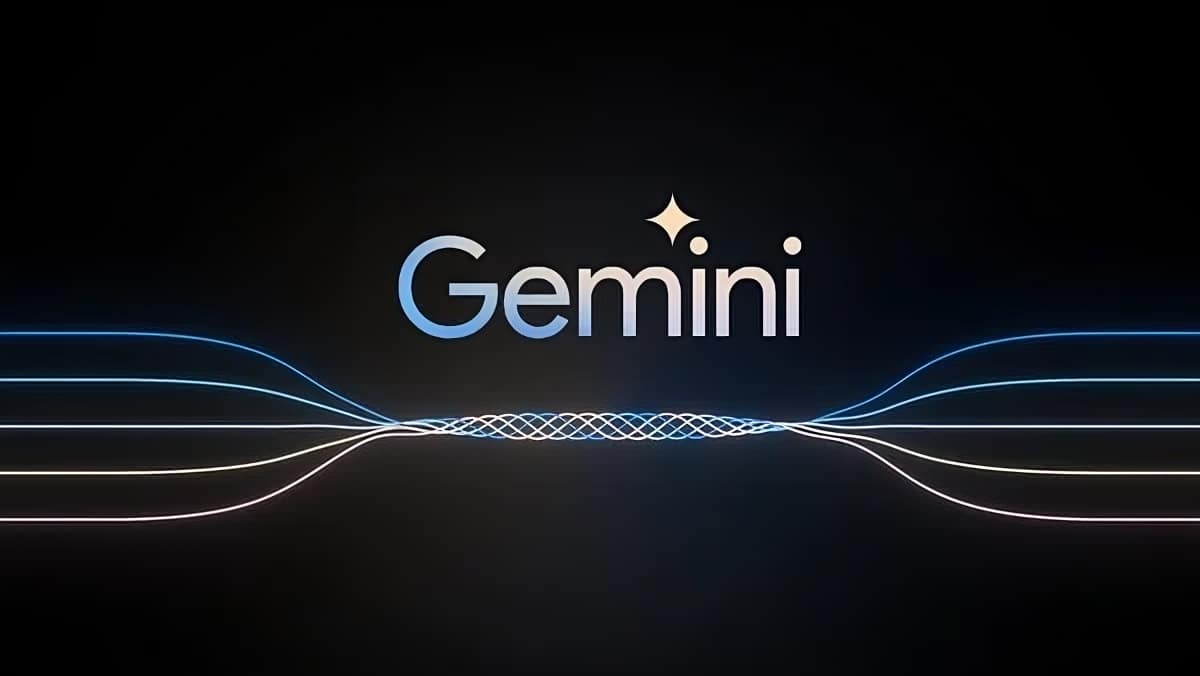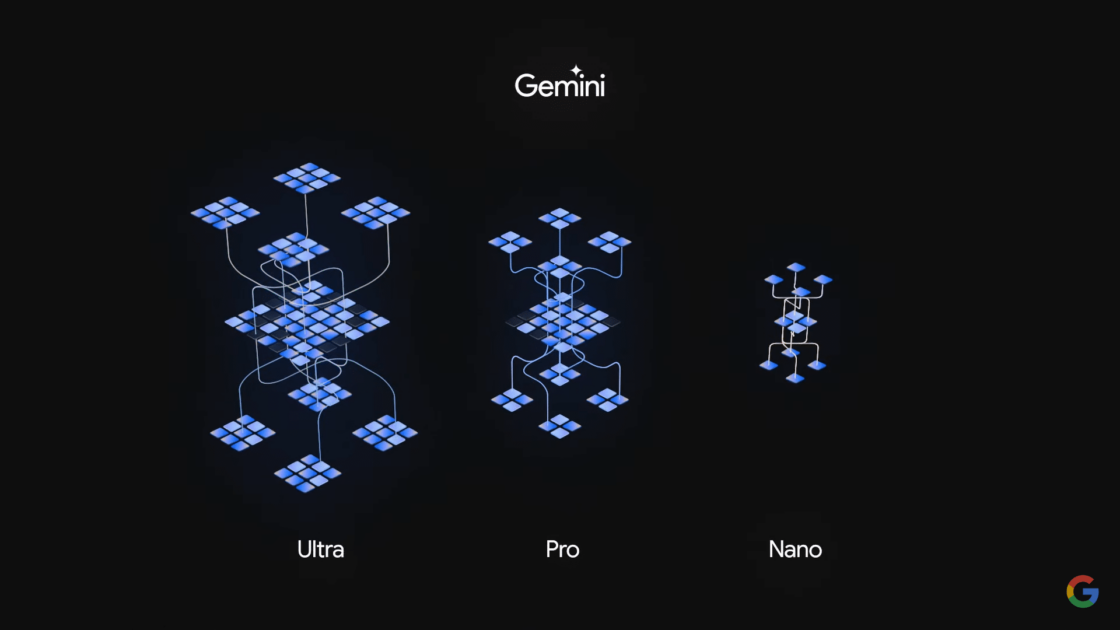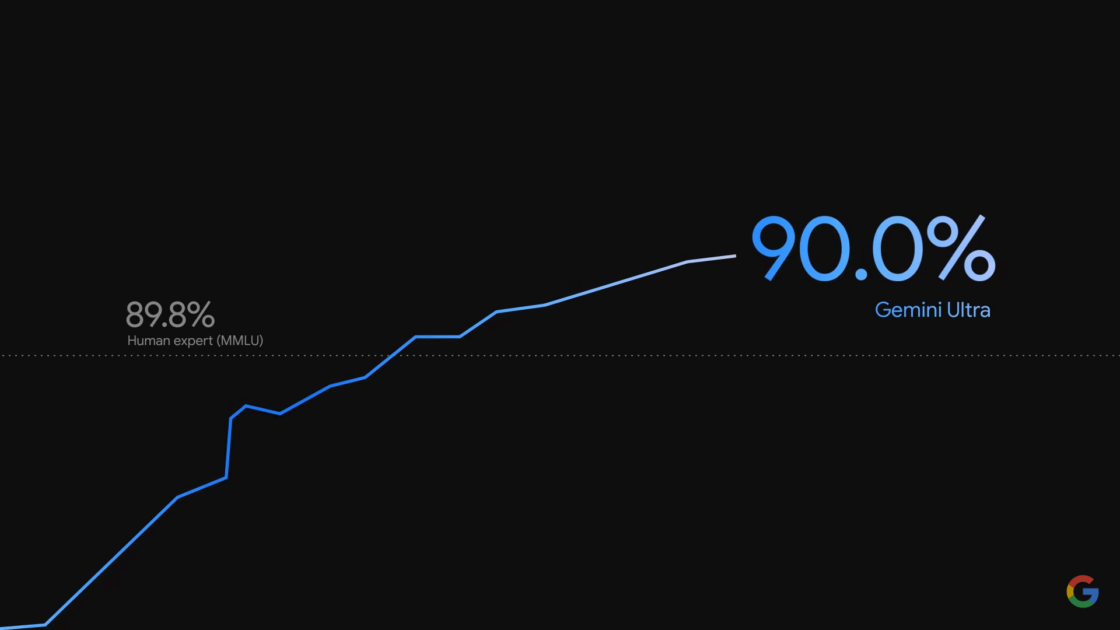Google has officially launched Gemini 1.0, its latest and most powerful large language model (LLM). Touted as a game-changer in the field of AI, Gemini promises to surpass the capabilities of existing models like GPT-4.
Check out How to use Chat GPT-4 for free on macOS and iOS here.

Gemini available in three versions: Ultra, Pro, and Nano
Gemini is more powerful and versatile than its predecessors, and Google believes it has the potential to revolutionize computer interaction.
Google claims it blows past the competition, including the much-touted GPT-4, in terms of reasoning, code generation, and even scientific research analysis. Think about it this way: it can devour 200,000 research papers, understand the juicy bits, and spit out a concise summary in under an hour. That’s some serious intellectual firepower.
Gemini is not available in just one model but comes in three different versions to cater to users’ specific needs.
- The Ultra version is suitable for big data centers.
- The Pro version is perfect for everyday use.
- The Nano version is designed for mobile devices.
Therefore, whether you are a programmer crafting complex algorithms or simply checking the latest news on your phone, there’s a version waiting to assist you.

What is Gemini used for?
- Reasoning: Unlike other LLMs that struggle with complex information, Gemini excels at understanding and drawing logical conclusions. It can analyze massive datasets, identify patterns, and generate well-reasoned arguments.
- Code Generation: While code generation is common among LLMs, Gemini takes it to the next level. It can write high-quality code in multiple programming languages, understand existing code snippets, and even explain complex algorithms in simple terms.
- Scientific Research: Gemini’s ability to analyze and interpret scientific data is unparalleled. It can process and summarize vast amounts of research papers, identify key findings, and even generate new hypotheses, leaving its competitors in the dust.
- Multimodal Capabilities: Unlike many other LLMs, Gemini can understand and process various input formats, including text, images, code, and audio. This makes it incredibly versatile and adaptable to different situations.
- Performance: Benchmark tests reveal that Gemini outperforms its competitors in most areas, demonstrating impressive speed, accuracy, and efficiency.

- Accessibility: Google has made it available in three different sizes: Ultra for data centers, Pro for everyday use, and Nano for mobile devices. This ensures that its capabilities are accessible to a wide range of users.
What can we expect from Gemini?
First and foremost, a search revolution. Google Search is about to get a whole lot smarter and more personalized thanks to Gemini’s immense knowledge base and sophisticated understanding of human language. Imagine getting results that anticipate your questions and provide information in the most user-friendly way imaginable.
But that’s just the tip of the iceberg. Its potential applications are vast and far-reaching, impacting sectors like healthcare, education, and research. Imagine AI-powered tools that analyze medical data to diagnose diseases faster or personalized learning platforms that are tailored to each student’s unique needs. The possibilities are endless.
Availability
While only a select group of users have access to Gemini 1.0 for now, Google’s already integrating it into Bard, its AI-powered chatbot. This gives us a sneak peek into the power this model holds. Early reports paint a picture of a truly remarkable AI, capable of tackling complex tasks with ease and understanding human context like never before.
Read more: